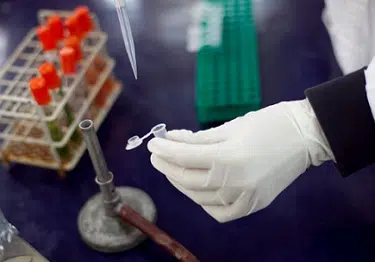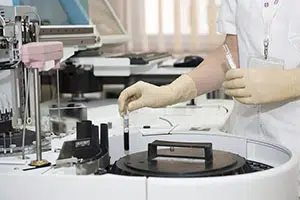 Bacteriology is the branch of microbiology focused on the analysis of bacteria . To precisely understand this notion, therefore, reference must first be made to microbiology and bacteria .
Bacteriology is the branch of microbiology focused on the analysis of bacteria . To precisely understand this notion, therefore, reference must first be made to microbiology and bacteria .
Microbiology is the scientific discipline dedicated to studying microbes . A microbe or microorganism, on the other hand, is a single-celled organism that can only be observed through a microscope .
Among the microbes we find bacteria , which lack a differentiated nucleus. There are bacteria that cause diseases and others that are responsible for the decomposition of organic matter, for example.
Returning to the idea of bacteriology , it is a field of study of microbiology that specializes in the development of research on bacteria . The expert in these matters is known as a bacteriologist .
Specialists in bacteriology can prevent, diagnose and treat diseases caused by bacteria. These professionals are part of work teams along with doctors, nurses and other individuals dedicated to health care.
Bacteriologists study urine and blood samples, to mention two possibilities. They are also able to examine soil , water and other elements in search of bacteria.
Those who work in the area of bacteriology must protect themselves with various security measures to avoid infections . They generally use glasses, masks, gloves and gowns, although in some cases they may even need special suits if the samples they study are very dangerous.
In this framework we must mention the concept of biosafety , which consists of applying the knowledge, equipment and techniques learned through scientific education to preventively prevent personnel, the environment or the laboratory area from being exposed to certain agents that may harm your health or integrity.
These agents are also known as biohazardous agents , and can be both materials and biological agents that present a danger to living beings, from plants to people. Some of the most common are fungi, viruses, parasites , allergens and bacteria.
 The routes of infection for those who work in the field of bacteriology are the following:
The routes of infection for those who work in the field of bacteriology are the following:
* the mouth : whether we are eating or drinking in the laboratory, or whether we touch our mouth with our fingers or some utensil that has been in contact with biohazardous agents;
* the skin : the risk is increased when we suffer a cut or wound and we do not proceed appropriately to isolate the affected area from the outside;
* the eyes : agents can enter through this route if we touch ourselves with our fingers or if an infectious material is splashed and we are not wearing protective glasses;
* the lungs : in a bacteriology laboratory it is mandatory to protect the respiratory tract to avoid involuntary inhalation of dangerous microorganisms.
Some of the most common safety standards in bacteriology laboratories are the following:
* leave all personal belongings where indicated before entering;
* never take off your robe or unbutton it before going out;
* sanitize and disinfect work spaces at the beginning and end of the day;
* keep hands clean at all times;
* take care of your posture and avoid lack of balance when handling substances and work items;
* wear appropriate footwear for a laboratory . At a minimum, non-slip;
* avoid the use of body accessories that may become sources of contamination.
Knowing and executing all these and other prevention techniques is not enough to eliminate exposure, since in the midst of activity, unexpected situations always arise that sometimes lead to fatal carelessness .
